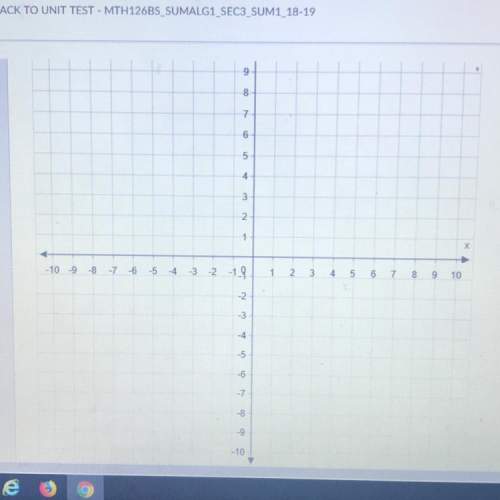here we can see that the storage increases
at certain times of the year - during the
warmer months, when the gas is not much
used for heating and reserves can be
increased - and then decreases during the
colder months because the supply is being
used. it is possible to model this with a
relatively simple trigonometric graph, but
first we examine the simplest trig curves.
065/065.html
the basics
the simplest sine and cosine curves can be generated by plotting the trig-function values
against the angles used in each function. the values can be found in the chart below:
ø (˚) 0 30 45 60 90 120 135 150 180 210 225 240 270 300 315 330 360
sin ø
€
0 1
2
2
2 3
2 1 3
2 2
2 1
2
0 − 1
2
− 2
2 − 3
2 − 1 − 3
2 − 2
2 − 1
2
0
cos ø
€
1 3
2 2
2 1
2 0 − 1
2
− 2
2 − 3
2 − 1 − 3
2 − 2
2 − 1
2
0 1
2 2
2 3
2 1
first we plot the sine data, letting the x-axis represent the angles and the y-axis the sine
values. the result is the scatter plot below.
based on just these 17 data points, we can see
that the function is following a straightforward
pattern - the sine values are increasing to 1,
decreasing through the same values to -1, then
returning to zero. when we connect the dots, we
get the periodic curve y = sin (x) below.
this “sine curve,” with equation
y = sin(x), is the simplest of trig
graphs. the curve rises and falls by
one unit from its “axis of
oscillation” - in this case, the x-axis
- and after we cycle through 360˚ it
appears we are ready to go through
the same y-values again. we can see
this same pattern in the cosine
function on the following page.
each sine and cosine curve has two basic characteristics:
amplitude - distance the curve rises above, and falls below, its axis of oscillation (marked by
the vertical arrows on the cosine graph). the formula is
€
amp = max− min
2 .
period - the length of one cycle (marked by the horizontal arrows on the cosine graph).
this can be calculated by measuring the distance between any successive maximum
points (or minimum points), or by doubling the horizontal distance between a
minimum and the next maximum.
for our first two curves, then, the amplitude is 1 and the period is 360˚ (or 2! if we are in radians).
adjusting the amplitude and frequency: y = a sin(bx), y = a cos(bx)
now that we have our “base” amplitude and frequency . . let’s change them. we can adjust both
characteristics by introducing the parameters a and b into the equations. the graph below shows the
curves y = a sin(x) for a = 1,2,3, and -0.5, with the original curve y = sin(x) being the thickest line.
clearly the amplitude of the curves has changed;
when a = 2, the amplitude is 2; when a = 3, the
amplitude is 3; and when a = -0.5 the amplitude is
0.5 (since amplitude, a distance, must be positive).
however, this last curve has also been flipped upside
down (or “reflected in the x-axis”). since the
amplitude must be positive even when a itself is
negative, we have the formula
amplitude = | a |.
the relationship between the b-value and the
period is not so straightforward. on the right
we have y = cos(bx) for b = 1,3, and 0.5. (the
thickest line is again our “base” curve.) when
b=3, the period decreases to 120˚; when
b=0.5, the period increases to 720˚ (so only
half the curve is shown here). we can describe
this reciprocal relationship with the formula
€
b = 360
period or
€
b = 2π
period ,
using the latter if we are working in radians.
shifting horizontally and vertically: y = sin(x-h) + k, y = cos(x-h) + k
to shift (or “translate”) a curve along either the x- or y-axis (or both), we introduce the parameters
h and k. below we have the graph of y = sin (x - 30) + 2 and y = sin(x). (note that we have returned
to an amplitude of 1 and period of 360˚). our original
curve y = sin(x) had its peak at the point (90,1); the
shifted curve has its corresponding peak at (120, 3). in
the same way, the original curve had a minimum value
at (270, -1); now the minimum is at (300,1). and
finally, the axis of oscillation has shifted vertically
from the line x = 0 to the line x =2. in other words, our
new curve has been created by shifting y = sin(x) right
30 and u p 2. and, in general, we can create the
following shifts:
horizontal shift = h (left if h < 0, right if h > 0)
vertical shift/new axis of oscillation = k.
modelling data: y = a sin[b(x-h)] + k, y = a cos[b(x-h)] + k
we have seen how the basic sine and cosine curves can be adjusted: by changing the amplitude
and period, and by shifting the curves horizontally and vertically. a summary is below.
amplitude = | a | vertical shift/axis of oscillation = k
period =
€
360
b
or
€
2π
b






















